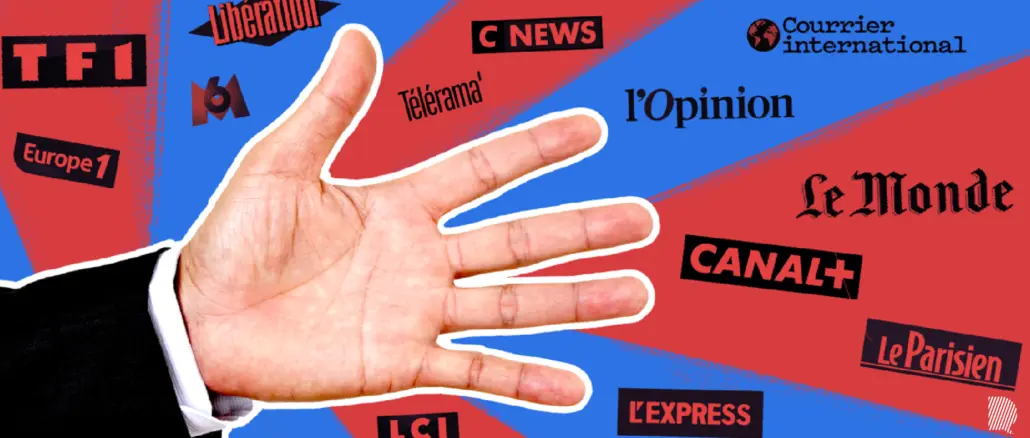2,500,000. That’s how many more popular votes Donald Trump got in the 2024 presidential election than Kamala Harris. Seems unexpected, right? However, many American political analysts predicted it. The paradox is that when you talk with French people, they all seem pretty surprised about the results. Most of them expected a triumphant victory for Kamala Harris. How can we explain this disillusion?
From the point of view of the French media, Kamala’s victory seemed perfectly legitimate. In early September, even a neutral outlet such as France 24 published an article entitled “US presidential election: a historian predicts victory for Kamala Harris,” based on Allan Litchman’s predictions. Thanks to his “13 keys method”, the American historian predicted nine of the last ten US presidential elections. Based on 13 factors, such as incumbency, social unrest or even scandal, this technique aims to predict the result of the election.
Therefore, we can make the hypothesis that French political articles were more biased, as they were relying on what they believed to be “reliable sources” such as American historians. Moreover, it is no secret that some journalists write based on what their readers want to read. And it must be emphasized that in France, very few people wanted to see Trump in power for a second term. Even other experts like economists made the same error when forecasting the outcome of the election. For example, the well-known economic magazine, Forbes, predicted that Harris would be an “inch ahead” of Trump.
In French media, regardless of their editorial line (left, right or centrist), Trump has often been depicted as the “worst” President of the United States, a “racist” and even a “clown”. As a matter of fact, the vast majority of French newspapers were supporting the Democratic Party, emphasising its environmental, healthcare, and social equity reforms. But when they do so, they try at first glance to show impartiality with regard to the platforms of the two candidates. They compare both, detailing the justification given by the candidates for each reform. For instance, on the proposed social security reform, Ouest France presented in detail Kamala Harris’s wish to reinforce the Affordable Care Act and how she would accomplish it. On the other hand, the first line describing Trump’s program is not a social security proposal as it is for Kamala, but an insult towards hers, which he described as “a miserable reform”. Then, the journalist puts forward the President’s wish to replace Obamacare, but highlights the fact that he does not explain how he would do that.
This type of example is relevant to many French newspapers. Thus, French people have the impression of a unanimous opinion leaning towards the Democratic party. This phenomenon can be explained by what could be called an “information bubble.” During the presidential campaign, it was nearly impossible to find an article supporting the Make America Great Again movement.
Furthermore, the French media makes it a deliberate effort to highlight Trump’s racist and sexist statements. Journalists use catchy headlines in order to discredit the new President. In October, the comedian Tony Hinchcliffe made headlines by comparing Puerto Rico to a “floating island of garbage” and making other racist jokes deemed politically incorrect. The stand-up comedian is closely tied to Donald Trump, and was chosen to “warm up” the audience before the candidate’s speech. Therefore, reporters from sources such as Le Monde, France 24, Le Point, and BFMTV used this controversy in order to shine light on the racist aspect of Trump’s campaign. All the main French media sources published articles denouncing the “racist and stupid joke”, some making the assumption it could cost him victory in the elections.
Despite the unwavering Democratic support, very few political figures show a certain affinity to Donald Trump. In fact, only the infamous right wing news channel, CNews, does support him especially on immigration and security topics. This support was embodied by Eric Zemmour, very much present on this channel. He values the Republican wish of crushing wokism and the fight of the lower class against upper ones.
We have to keep in mind that despite the variety of French media, the information is often biased due to a multiplicity of factors. As a result, American media advocating for Trump’s ideas are unknown by most Europeans, and so the arguments in favour of his program are put under silence. We must remain vigilant and not fall into a Eurocentric vision of foreign concerns, even if the reality is not as appealing as we would like it to be.
Other posts that may interest you:
Discover more from The Sundial Press
Subscribe to get the latest posts sent to your email.





